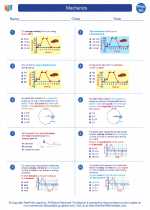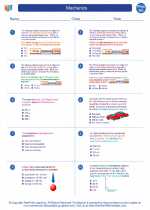Recreation in Physics
Recreation in physics refers to the use of physical principles and concepts in leisure activities and sports. Understanding physics can enhance recreational activities by providing insights into the underlying principles of motion, energy, and forces.
Study Guide
- Newton's Laws of Motion: Understand the three laws of motion and how they apply to various recreational activities such as cycling, skating, and swimming.
- Projectile Motion: Learn about the motion of objects thrown or projected into the air, and how it applies to activities like basketball, soccer, and archery.
- Energy and Work: Explore the concepts of kinetic and potential energy, as well as the relationship between work and energy, and how they relate to activities like rock climbing, skiing, and skateboarding.
- Friction and Drag: Study the effects of friction and air resistance on objects in motion, and how they impact activities such as car racing, cycling, and skydiving.
- Fluid Dynamics: Understand the behavior of fluids (liquids and gases) in motion, and how it applies to activities like swimming, surfing, and sailing.
- Collisions and Momentum: Explore the principles of momentum and the conservation of momentum, and how they relate to activities like billiards, car collisions, and sports involving balls.
By understanding these physics principles, students can gain a deeper appreciation for the science behind recreational activities and sports, and may even find ways to improve their performance through the application of physics concepts.
.◂Physics Worksheets and Study Guides High School. Mechanics
The resources above cover the following skills:
Core Ideas for Knowing Science
Physical Science
Changing the movement of an object requires a net force to be acting on it.



